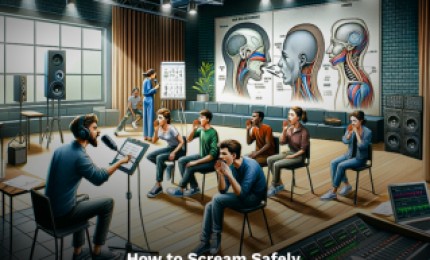As an actor, embracing improvisation opens up a world of creativity, spontaneity, and authenticity on stage. The art of improvisation allows actors to think on their feet, respond to unexpected situations, and breathe life into their characters. In this blog post, we'll explore the importance of improvisation for actors - when to incorporate it, why it's a valuable skill, and how to master the art of improvisation. By the end, you'll be equipped to unleash your creative potential and captivate audiences with your engaging and dynamic performances.
Improvisation is the ability to create in the moment without a script, allowing actors to respond spontaneously to their scene partners and the environment. It adds an element of unpredictability, making each performance unique and thrilling for both actors and audiences. Embracing improvisation enhances an actor's versatility, adaptability, and connection to their character.
Incorporating improvisation in acting can be beneficial in various situations. Improv is particularly useful during rehearsals to explore new ideas, discover nuances in character development, and build a deeper connection with fellow actors. It also comes in handy when unexpected mishaps occur on stage, enabling actors to stay in character and keep the scene alive.
Improvisation can breathe new life into scripted scenes, making them feel organic and authentic. Actors can use improv techniques to deepen their understanding of the scene's emotional dynamics, find new beats, and explore alternative character choices. This process enriches the overall performance and creates a sense of spontaneity that captivates the audience.
Improvisation requires actors to let go of fear and embrace vulnerability. Stepping into the unknown can be daunting, but it also opens the door to new discoveries and breakthroughs in performance. By taking risks, actors find creative solutions and unlock hidden layers in their characters, making their portrayal more compelling and relatable.
One of the fundamental skills of improvisation is active listening. Paying close attention to scene partners allows actors to respond authentically and organically. Reacting in the moment builds a genuine connection between characters, creating believable and engaging interactions on stage.
Improvisation fosters a sense of camaraderie among actors, as it requires a high level of trust and collaboration. Working together in improv exercises and scenes strengthens the ensemble, enabling actors to support and inspire each other. This sense of unity shines through in their performances, creating a cohesive and harmonious production.
Improvisation is a skill that can be developed and refined through practice. Participate in improv workshops and classes to hone your abilities. Improv games and exercises improve your quick thinking, adaptability, and creativity. Embrace the "Yes, And" principle, where actors accept and build upon each other's ideas, leading to dynamic and engaging scenes.
Improvisation is a powerful tool for actors to unleash their creative potential and elevate their performances to new heights. Embracing spontaneity and staying present in the moment enriches the actor's connection to their character and scene partners, resulting in authentic and captivating portrayals. By incorporating improvisation during rehearsals, scene work, and unexpected situations, actors infuse their performances with freshness, versatility, and authenticity. So, let go of fear, embrace the unknown, and step into the world of improvisation - a world where creativity knows no bounds, and the magic of live theatre truly comes to life.

"Revolutionizing Performer Jobs Through Technology" In today’s digital age, the entertainment industry has transformed significantly, shifting from traditional in-person auditions...
Read Blog
So, you want to be an actor? Maybe you've dreamed about seeing your name in lights since you were a kid, or perhaps you've recently discovered a passion for performing. Whatever your reasons,...
Read Blog.jpg)
The film industry is undergoing a transformative shift with the integration of artificial intelligence (AI) in movie production, stirring both innovation and controversy. Recent films like Late Night...
Read Blog
Safeguarding Your Voice During Intense Acting Roles Acting roles demanding extensive screaming bring significant challenges to vocal health. While portraying high emotional stakes can be rewarding...
Read Blog
As the film and television industries continue to grow rapidly in major U.S. cities like New York City, Atlanta, and Chicago, an increasing number of theater actors are exploring opportunities to...
Read Blog
Memorizing lines for an audition frequently raises questions among actors. While the query might seem straightforward, the appropriate response is layered and complex. Understanding Audition...
Read Blog